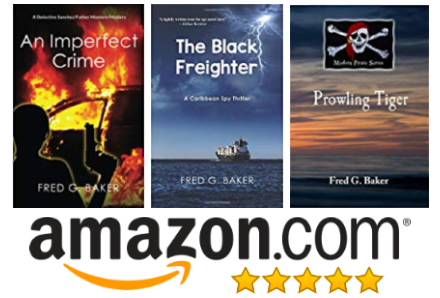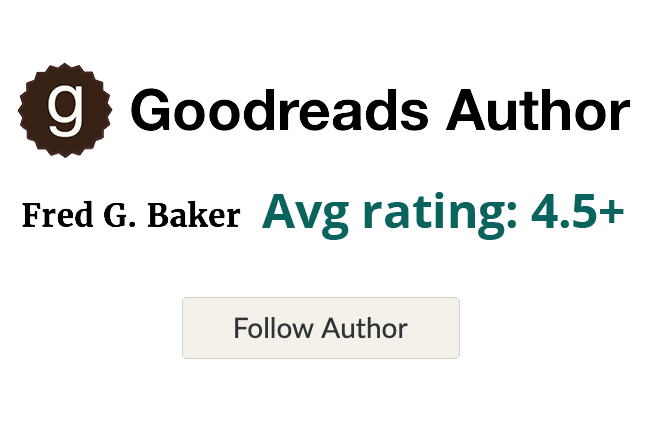Hemingway Dialogue
F.G. Baker
“So what do you think about Hem’s dialogue? Is it effective?”
“I don’t know. What do you mean?”
“Well, he has a certain style to it, doesn’t he?”
“I suppose.”
“Well, is it effective?”
“Define effective.”
“Does it add to the story or the character development?”
“Sometimes.”
“Be more specific.”
“Sometimes he goes on too long.”
“How do you mean?”
“Well, it turns into banter.”
“So?”
“Banter isn’t dialogue. He uses it as filler sometimes.”
“What do you mean?”
“For a man of few words, he uses dialogue for the wrong reasons.”
“Oh. You mean he has dialogue but it is unclear why?”
“Yes. It’s like he wants to show the characters talking and forming a bond or something, but the subject of the banter has little to do with the characters.”
“How so?”
“And the conversation always involves fish or fishing?”
“You mean like in ‘The End of Something’?”
“The short story.”
“How?’
“He apparently had trouble communicating with women.”
“Why do you say that?”
“Because he took the girl out for a picnic and then dumped her in the middle of the picnic.”
“In the story?”
“Yes, they go out fishing and have a picnic dinner at a favorite spot on the lake and he dumps her.”
“He dumped her?”
“Yeah. And he made her row the boat back home. What a romantic!”
“So what does that have to do with dialogue?”
“Well, the dialogue up to that point is nothing. It goes nowhere.”
“What do they talk about?”
“Fish mostly. He always gets a fish in there.”
“He does talk about fish a lot.”
“Yeah. He loved to fish.”
“He was always fishing.”
“And what does he get a Nobel Prize for? A book about fishing.”
“You mean ‘The Old Man and The Sea’?”
“Yeah, fish, fish fish. The man had fish on the brain.”
“And hunting.”
“In ‘Across the River and Into the Trees’, he talked about hunting.”
“Well, that was different. He was showing the good old days for the old Colonel.”
“Yes, but the ‘good old days’ were hunting days.”
“He liked to hunt. So what?”
“It shows a pattern.”
“Pattern?”
“He fills in the conversations with fishing. To him it is important.”
“You think he just used it to fill in dialogue?”
“Yes, sometimes.”
“Well, I don’t know.”
“And the dialogue is revealing about him, not his characters.”
“What do you mean by that?”
“Well, who do you think the old man was in the fish story?”
“You mean in ‘The Old Man and the Sea’?”
‘Sure. It is all about the big fish that got away.”
“But it didn’t get away. The man caught it.”
“But the sharks ate it. So he didn’t have a fish when he came into port. So it got away.”
“But he still had the skeleton.”
“What kind of a trophy is that?”
“It was proof that he caught a big fish.”
“But it was a sort of failure.”
“What are you talking about.”
“It was about his life as symbolized by the fisherman.”
“How is that a failure?”
“Where was Hem’s fish?”
“But it was a story about a fish!”
“And there was little dialogue.”
“So now we are back to dialogue.”
“Yes.”


